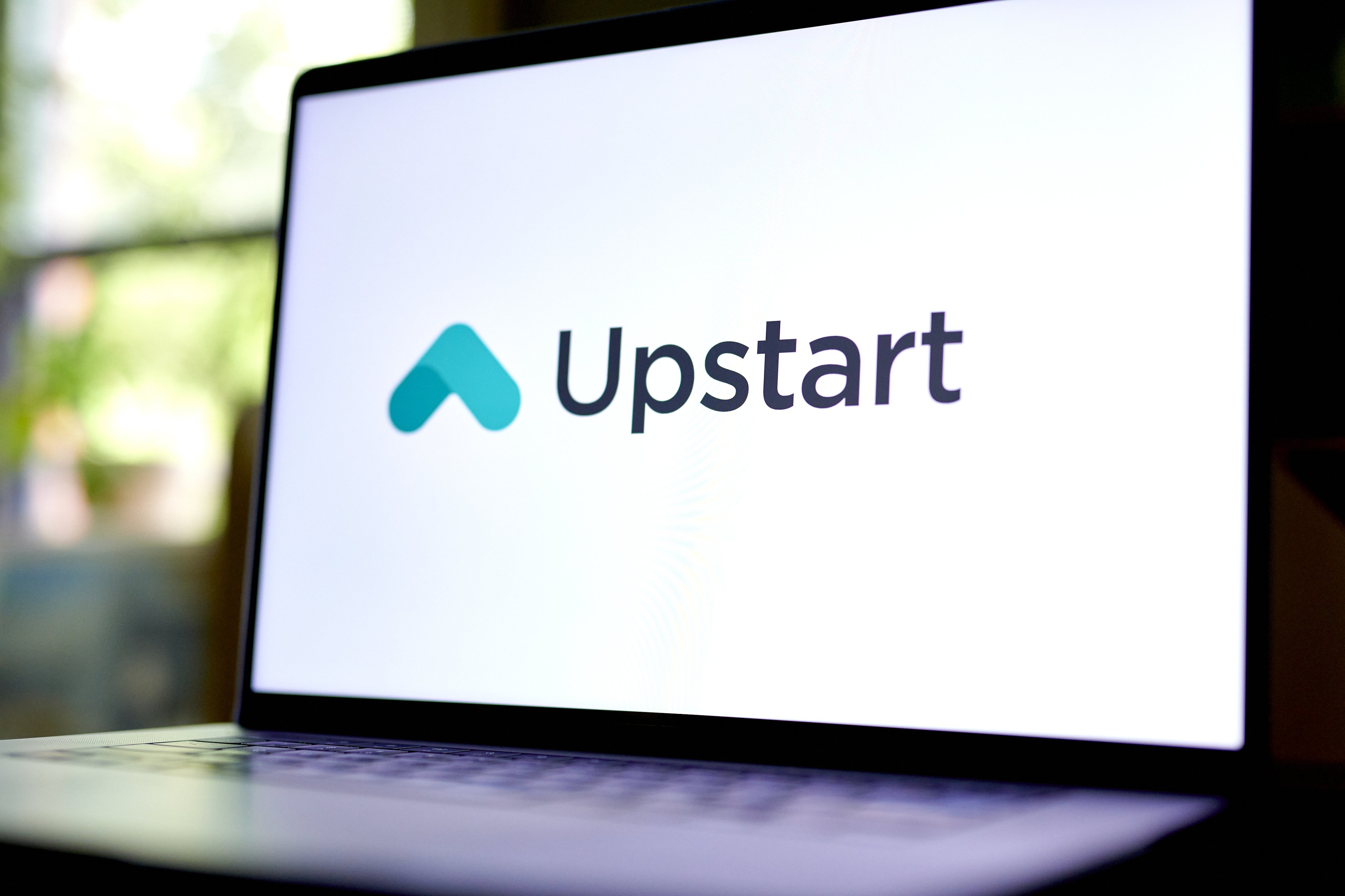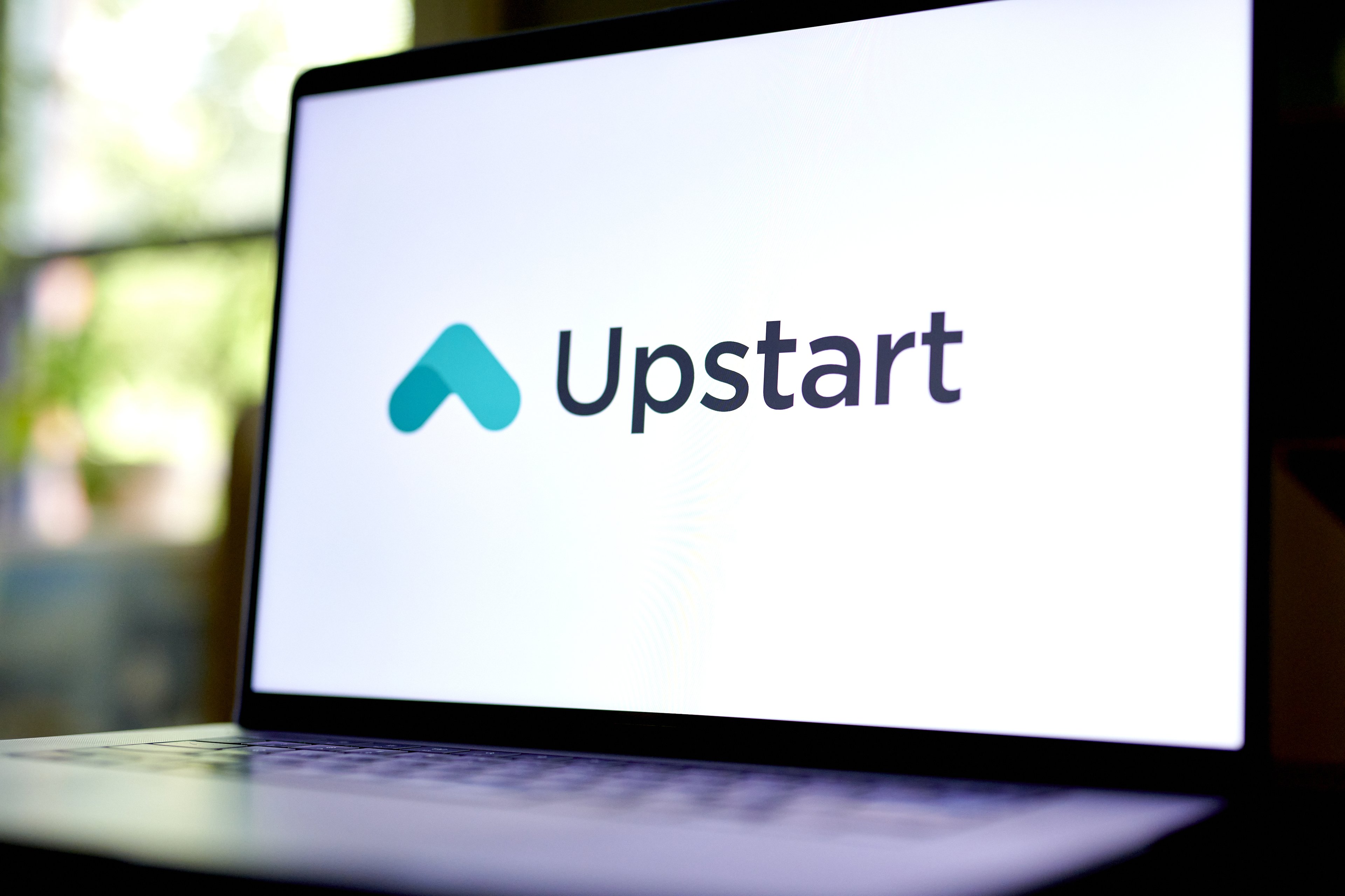IPO darling Upstart Holdings (UPST 1.76%) has pulled back 72% from its all-time highs amid market uncertainty and a rotation out of speculative tech stocks. Can the fintech platform that utilizes artificial intelligence to assess creditworthiness disrupt the traditional lending industry? Or does it face an uphill battle against established lending companies?
In this video clip from "The Rank," recorded on Feb. 14, Motley Fool contributors Matthew Frankel, CFP®, Jason Hall, and Tyler Crowe discuss Upstart's meteoric rise and recent fall, and explore the challenges the company faces in a crowded field.
Matt Frankel: Upstart went public at a $20 IPO price in December 2020 and it peaked in 2021 above $400. It was a 20-bagger in less than a year after its IPO. It has since come down to earth, might be an understatement. Upstart is down about 72% from its highs, and that's after a recent rebound. This one got hit pretty good. Still a pretty expensive company, about an $8.8 billion market cap. Upstart actually reports tomorrow, so we'll get a better look at the state of the business, which I'm really excited to see because the second and third quarters weren't very comparable to the year before. The second quarter of 2021, Upstart's business was going, they were making loans as much as possible. They pretty much pressed the brakes on lending in the second quarter of 2020. On paper it looks like 1,000% year-over-year gain. But it really wasn't. The third quarter was like that, but less so. Revenue was up 250% year over year. Again, not an entirely apples-to-apples comparison, but the fourth quarter should be. I want to see where that lands tomorrow.
So Upstart's mission is to democratize access to credit and to do a better job of predicting loan-loss risk than the traditional methods, specifically the FICO Score. Now, there's no question. I think the other guys would totally agree with me that the FICO model is not perfect. It does not accurately predict default risk for every borrower. It especially doesn't serve the lower end, the lower credit end as well. People who maybe have not established credit for very long or people who maybe had a bankruptcy five years ago, and their credit was destroyed for the next seven years because of it. Those are the people the traditional method really underserves, and that's a pretty big segment of the market. To date, Upstart has used its proprietary methods to underwrite personal loans. For the most part, they are just getting into the auto lending space, but in the personal loan market, they've had tremendous success. The entire personal loan industry is about $80 billion a year in loan originations. Upstart as of the third quarter was originating annualized loan volume of about $12 billion. That's pretty impressive market penetration, especially because they are only concentrating on the subprime credit tiers. Their business has taken off. They haven't really been tested yet, which is my biggest negative on the company, and Jason and I have talked about this before on shows. Upstart was founded in 2009, hasn't really been around during a major downturn where borrowers are defaulting a debt. It will be tested if that ever happens, if and when. The real possibility here is for that methodology, if it works, which let's assume that it does to be translated to other forms of lending. I mentioned auto lending, which is a massive market. Let me share my screen real quick.
Jason Hall: That's a massive subprime market, too, right?
Frankel: These are the markets that Upstart is planning on targeting, or has already targeting. As mentioned, the personal loan market already. The auto loan market is roughly seven times the size and is in massive need of disruption at the subprime levels. The subprime auto industry is a very predatory credit environment, and it's not totally the dealers' fault. It's not the dealers' fault, but it's not totally the auto dealers' fault because there's not a great method to underwriting loans on subprime borrowers. If Upstart can translate its personal loans success into the auto loan industry, that could 5x its business all by itself. Then the long-term potential, you see that mortgage loan market right now if you're a subprime borrower it's really tough to get a mortgage. There aren't mortgages that exists other than FHA loans for people with credit scores under 620 right now, FHA loans exists, but those are high-cost, and are government-backed and things like that. There's a lot of opportunity to translate this into other forms of lending. At a $400 stock price, this was almost a $40 billion company in the mid-30s actually. The risk-reward didn't really make too much sense to me at this point until we actually get some comparable growth numbers. Like I mentioned, I'm hoping to see tomorrow, but at a sub-$10 billion valuation like it's at now, it looks like it might be worth a second look. Guys, any opinions?
Crowe: Without getting too wonky, obviously, thinking. I can go in a lot of different directions here, so I'm just going to keep it general as possible. Mortgage rate, or loan origination is one of the most competitive industries out there. Half a basis point gain is, could be billions for people. What is Upstart doing that is so unique, and so proprietary that no big bank like you said, if there's money to be made, Goldman is going to make it. Probably same can be said for so many other large banks, or even something like what SunTrust change its name to, whatever.
Hall: Truist.
Frankel: No, that's BBNT.
Crowe: This will be fuel that would spend billions of dollars, and something like that, so what is Upstart doing that is going to fend them off and keep like $300, $400 billion dollars banks from just going no we're going to take this over.
Frankel: Sure. Upstart is not a lender itself, it provides some kind of a cloud-based artificial intelligence platform that uses about 1,000 different data points on consumers to improve it. The big strength in the program right now is that it has over 1 million loans worth of consumer data to look at to be able to better predict, if you have a college degree, does that affect your default risk, things of that nature. In theory, and this is a big part of the thesis, is that Upstart's platform could power some of these big banks lending operations, and cut down under losses. Like you mentioned, Goldman Sachs has the market's platform that already makes personal loans, so instead of using the FICO score to evaluate borrowers, it could use Upstart's platform, theoretically cut down on its losses, and make more loans with less risk of loss and everybody wins. That's kind of a lot of the thesis is that eventually bigger and bigger institutions will catch onto this and bring it on.
Hall: It's the platform, right? That's the idea, and in that Tyler, I think to answer your question as to haven't had too, I mean, I think that's just the simple answers is that, I mean, let's don't ignore entrenched players. Why change what's worked for as long as this has been the thing, right? Why increase the risk of trying something that doesn't work, right? So I think in a way that's what makes the timing great for Upstart is because we have been on this strong economic growth period for as long as we have that the cycle has been in its favor to start. That's the reason I rated it No. 7, as appealing as the risk-reward profile's changed because the valuation has come down so much, but the level of absolute risk is the same. Until we go through a full credit cycle, we don't know how strong what it's saying is going to work. If it does work, I think it works in more ways than just being able to reduce risk, right? As a lender, if you're lender, do you want to adopt its platform and pay them, you can not just cut down the amount of defaults that you potentially end up to, but you can find like the right, like risk profile that works for what's you trying to do, maybe you just want to grow your loan book more and take on a little bit more risk, right? You could, they say with their algo, that you can do that, so it's really interesting what they're doing. I'm just not convinced it's going to be as good until we go through a full credit cycle, and that's why I rated as low as I did. I don't want people to think it's a value stocks. This is not, a value stock is still a tremendous amount of risk it's not going to work out. It could be a very profitable company for two or three more years and grow like crazy, and then lenders stop buying their loans because the default rates are much higher than anybody predicted.
Crowe: Well, that's what I was going to ask, too, it's been around for a while and obviously we've been in a favorable credit environment, but it's the proof in the putting, like have we seen can they like, show materially better default rates than people in this industry?
Frankel: Yes, they've done their own studies, and in great economic environment, they say it can reduce default risk by up to 75% based on their information. That's in great economic times when default rates are at record lows across the board anyway. It really remains to be seen if a financial crisis happens again, how that's going to translate.






